There’s a wild world thriving in the meandering waterways and coastal strip of our largest city.

I HAVE A SUNRISE DATE WITH A SEAHORSE. It’s at Manly Cove, so I’m up early, driving across Sydney Harbour Bridge, racing the rising sun. The traffic is already a headache; Google Maps shows a further delay in my predicted arrival time; and I still need to find a car park, get my dive gear together, check my camera and locate my muse – potentially tricky considering its tiny size and cryptic appearance and behaviour.
As an underwater photographer, I work mostly away from major urban centres. But here I am, turning onto the notoriously hectic Military Road and driving with barely enough elbow room towards Sydney’s populous Northern Beaches. I arrive as the pastel pink and blue hues of first light colour the sky and quickly enter the water. Finning along the sandy bottom towards the net of Manly Cove’s swimming enclosure, the water is surprisingly clear as blue swimmer crabs and harvest cuttlefish hustle for my attention.
Minutes later I find my quarry – a charismatic creature, just 15cm long, covered in hard body armour and grasping the net with its prehensile tail. The stress of the morning rush hour melts away with the rising sun as I capture a portrait within the last shafts of dawn light.
Sydney’s sun-spangled waters are central to the city’s national and international reputation. But I’ve often wondered how much life lies submerged, hidden away from the above-water pressures of Australia’s biggest city and its ever-sprawling human population. So now I’ve seen proof of the city’s growing reputation as a seahorse haven. But what else is veiled from view beneath the opaque surface of the waters near some of our most iconic landmarks, beaches and headlands?
This story is from the July-August 2018 edition of Australian Geographic Magazine.
Start your 7-day Magzter GOLD free trial to access thousands of curated premium stories, and 9,000+ magazines and newspapers.
Already a subscriber ? Sign In
This story is from the July-August 2018 edition of Australian Geographic Magazine.
Start your 7-day Magzter GOLD free trial to access thousands of curated premium stories, and 9,000+ magazines and newspapers.
Already a subscriber? Sign In
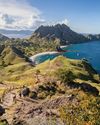
SULAWESI SENSATIONS
There are worlds within worlds and marvels untold waiting to be experienced on Indonesia's remote islands.
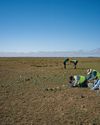
SEARCHING FOR AUSSIE DINOSAURS
Our understanding of where to find ancient life in Australia has been turned on its head by a new appreciation of the country's geology. Now the world is looking to our vast outback as the latest hotspot to locate fossils.
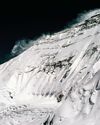
THE HARDEST NIGHT
The first Australian ascent of Mt Everest in 1984 is one of the great feats of mountaineering. Climbed by a small team semi-alpine style, with no bottled oxygen, via the Great (Norton) Couloir, it remains unrepeated 40 years later.
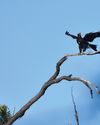
WEDGE-TAILED WONDER
The chance discovery of an eagle nest leads to an extended vigil observing normally hidden behaviours of one of nature's supreme winged marvels.
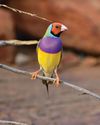
BURDENED BY BEAUTY
Northern Australia's Gouldian finch survives in huge numbers in cages around the world, but its wild population continues to struggle.
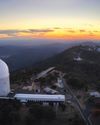
A TELESCOPE FOR A GOLDEN AGE
After a stellar 50 years as one of the country's major scientific assets, the AAT continues to play a major role in keeping Australian astronomy on the world stage.
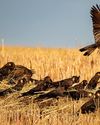
COCKY WHISPERING AT COOMALLO CREEK
This patch of remnant bush on the edge of the West Australian wheatbelt is a place loved by one of Australia's rarest bird species and the man who has studied the site for more than 50 years.

A PIONEERING PAIR
Louisa Atkinson and her mother, Charlotte, were among Australia's earliest authors, and pioneers in women's rights.
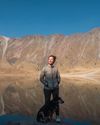
THE LONGEST WALK
Lucy Barnard is walking from Argentina to Alaska -the length of the Americas - on an extraordinary journey of endurance and adventure.
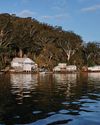
SECLUDED, BUT NOT ALONE
In an era of heightened social isolation, where many of us lead lonely lives, Dangar Island offers the chance to be part of a supportive, connected community.